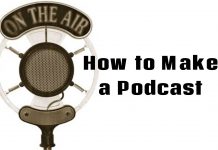Learn the tricks of his trade and how not to be taken in by them
At some point in most of our lives we’ve fallen prey to a clever salesperson. Sometimes we are even naïve to what are known as “the oldest tricks in the book”. It’s a psychological game that you can defend yourself in – with a little education.
For instance, specifics are used to trick you. You’ve seen how cars for sale are never priced out to a round number – it’s not because it reflects careful detailed consideration as to its real value. It’s a rouse. It’s assumed that if we see a rounded number we’ll think it’s a general quote and open to negotiation. On the other hand, our mind allegedly tells us that a specific value must have some merit and should be respected. And that’s what the salespeople want you to think.
Say you’ve found a car that you’re interested in. It’s priced at “$21,940”. Round it out to  the nearest hundred and haggle from there. You can be assured any dealer will be just as happy to work from $21,900.
the nearest hundred and haggle from there. You can be assured any dealer will be just as happy to work from $21,900.
It’s easy to spot pressure tactics. Don’t be fooled. “Supplies are Limited” is quite often a term of hype, an exaggeration. The fact is, there is a full warehouse of those “supplies” and they need to be unloaded! But interestingly enough ‘less’ is better. If a consumer truly believes an item is almost out of stock, they’re more likely to stock up.
And then there’s the use of comparisons. Even after an item is discounted, you are still likely to see its “original” price. That’s due to the science of comparison. When you place two products beside each other – in this case, openly priced items – the difference appears much more profound. The same principal applies to the ‘Before” and “After” approach of weight loss ads. Don’t be sucked in by such basic come-ons.
Rise above these cheap tactics and follow the rule of “ignore the before”. “On Sale” prices can be meaningless. For example, say you see a sign that claims, “Was $1,999, Now $999” It reads like a great deal. But just do a little research – as simple as comparison shopping – and you will reveal the truth behind just how great a deal it really is.
My favorite sales gimmick is that of free samples. Shoot, as a kid I made supermarket bakeries regret this tactic. Imagine my consumer outrage at the tender age of ten when they refused me any further free samples of cookies. It’s easy to jest about something so silly, but in this day and age I wouldn’t be surprised if a lawyer would take something as inane as that on. A lawyer is just another salesperson after all…
The ‘free sample’ strategy is based on what psychologists refer to as the “rule of commitment”. It’s intended to play on feelings of obligation. Taking a sample implies a commitment to the human psyche. But only publicly – we actually feel less a sense of debt with privately presumed promises. It’s a trait supposedly dating back to our ancestors, when ancient people found peace by keeping the promises among themselves enforced. But in the modern age, we can enjoy those samples and rationalize, “would I have bought this anyway”? If not, move on, because you’re NOT obligated.
Of course, the art of selling is psychological and based on years of studies, but manipulating emotions is what a salesperson needs to do. For instance, the “self-perception theory” plays with the riddle, do our beliefs influence our behaviors, or vice versa? It’s an argument that says we observe our own behavior and race to conclude that a certain belief influenced it. How does that work in a retail scenario? A salesperson will fabricate that belief for you, thereby justifying your potential purchase. If you fall for it, that is.
It’s hard not to get caught up in the material world. But when we let our possessions identify us, we lose sight of what really defines our character – our actions. Don’t let the frivolity of ‘gear’ or the pressure of sales put you in their debt!








